lil-history-egg
Hello! I'm Zeef! I have a degree in history and I like to ramble! I especially like the middle ages and renaissance eras of Europe, but I have other miscellaneous places I like too!
270 posts
Latest Posts by lil-history-egg
gawaingirlies stay ga-w(a)inning. that’s what I always say.
What's the first question that really pops into peoples' minds about Ea-Nasir? I'm trying to write this history down, but I'm struggling.






• Drop-waist dress.
Designer: Castle, Irene
Date: 1920
Medium: Silk, lace.

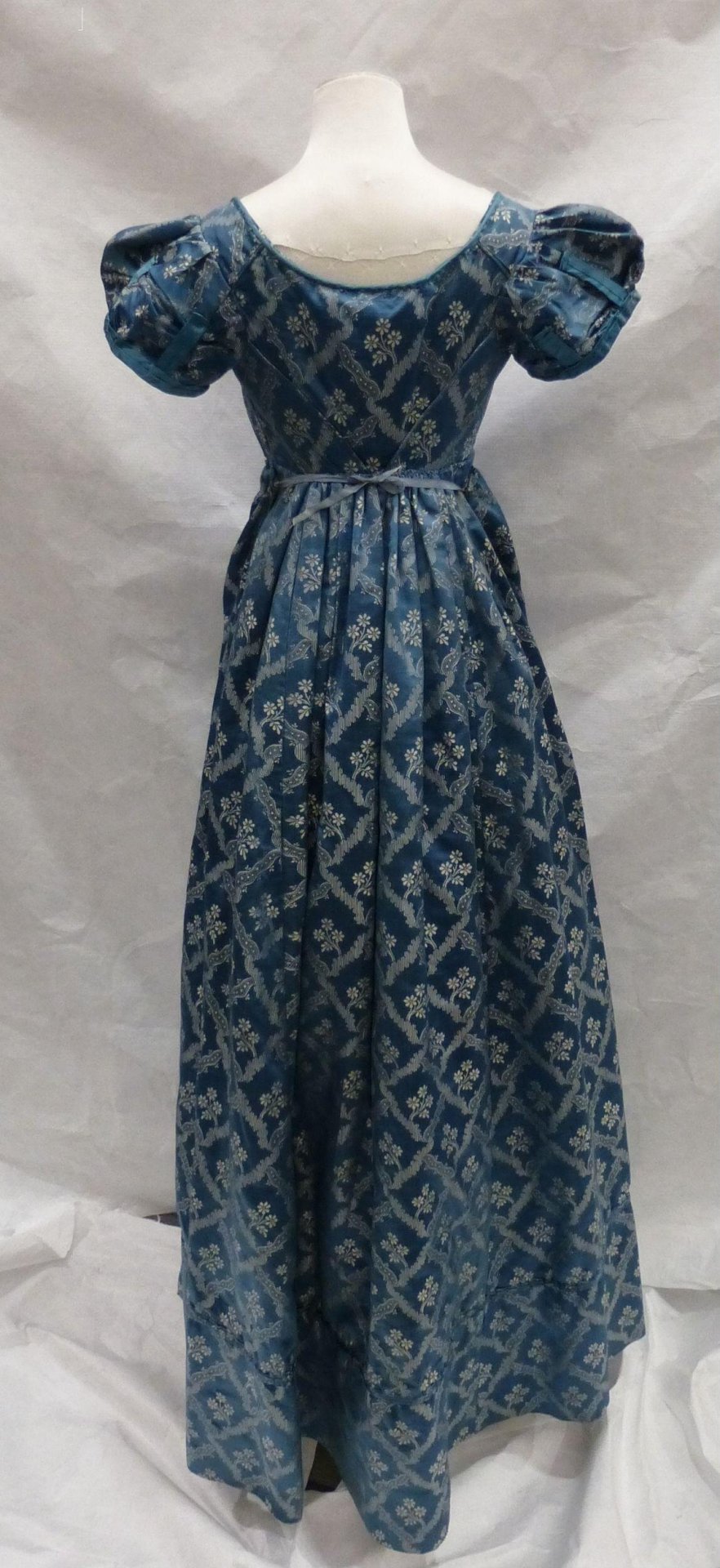

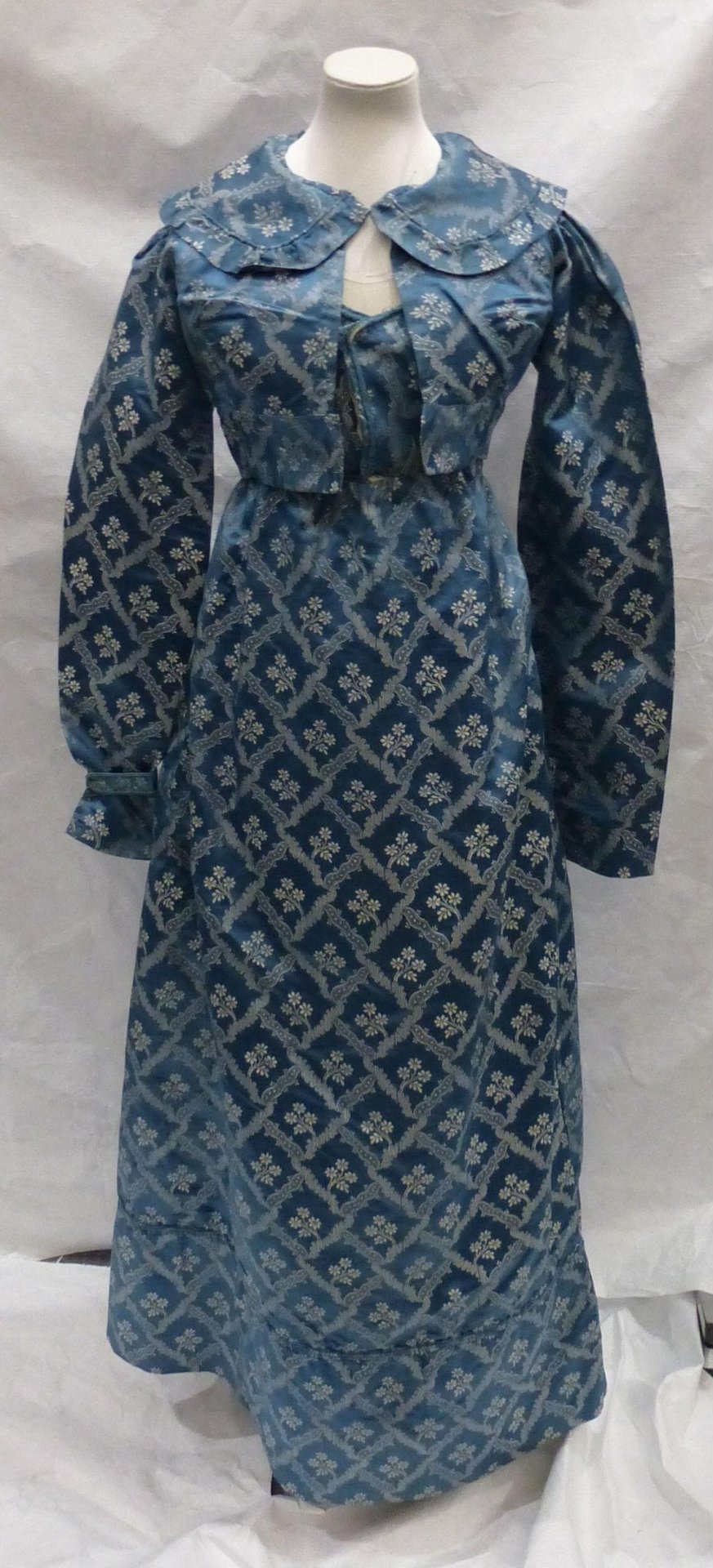
Evening Dress & Matching Spencer, c.1820
@VandA
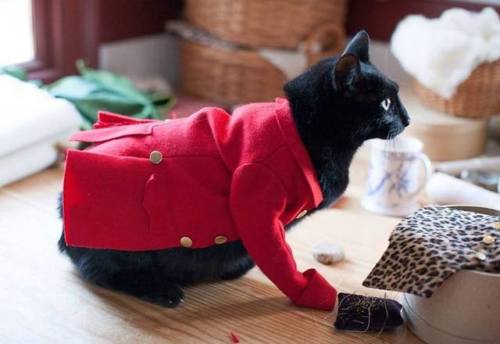
The tailors at Colonial Williamsburg made a suit for their cat
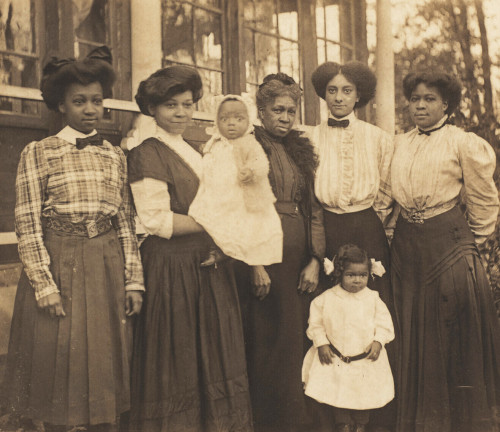

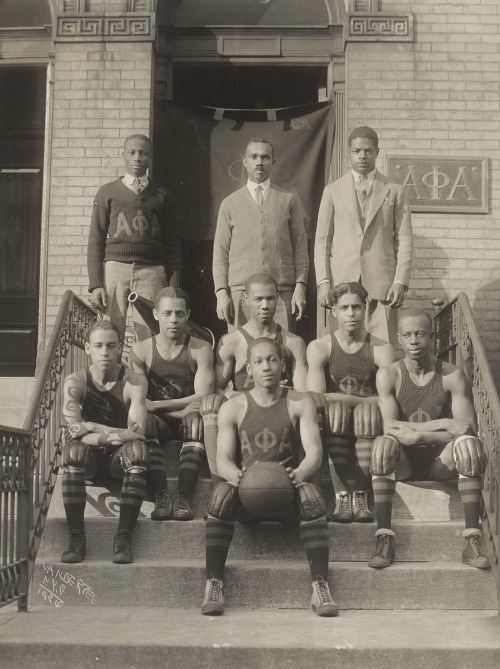



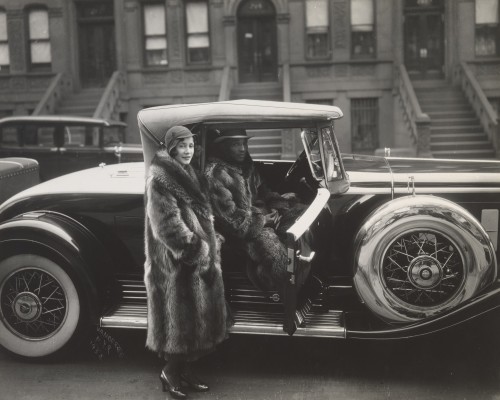

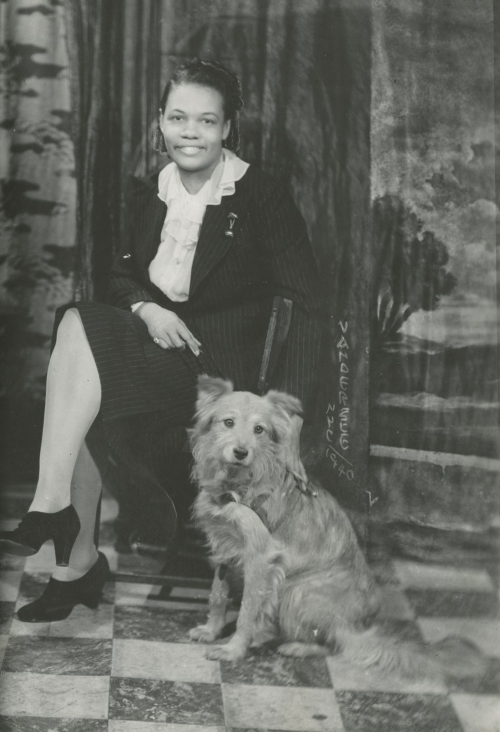

Portraits by James Van Der Zee
Women and children, Lenox (c. 1909)
Harlem (c. 1920)
Alpha Phi Alpha Basketball Team (1926)
Billy (1926)
Untitled (Portrait of a Boy in a Sailor Suit) (1927)
Couple (1930)
Couple in Raccoon Coats (1932)
Sunday Morning (c. 1932)
Her Best Friend (1940)
Jean-Michel Basquiat (1982)
My second grade teacher would scream at us and was generally horrible, but she specifically targeted me for some reason. Every week on Friday, if you didn't get a ticket for bad behavior, you could sit with the rest of the class and get candy and watch a movie. I never got a ticket, not once. Then! Halfway through the year, she swapped it, so if you were good, you'd get a ticket for good behavior, and then I didn't get any tickets at all. I was almost always the only kid left out, almost always. I think I had one week the entire time I was in that class where I got to sit with the others and watch the movie, every other week I was functionally called out in front of the class for being a Bad Kid and kept away from the others. I had ADHD and some form of dyslexia probably, but I was always a people pleaser, there was nothing I would have been doing that warranted this aside from struggling not to talk in class like every other kid. She also scared me so bad that I forgot what ability to read I did have at the time and had to be put in remediation when I changed schools. No one thought to test me for ADHD. She didn't mention behavior issues to my parents much, I think. I did get tested for dyslexia but because I started reading better out of her class, they stopped, so I never actually got any academic support. Last I heard about that teacher, they were considering revoking her license, and I really hope they did because no kid deserves to go through what she did.
Everyone give me the most screwed up thing that has ever happened to you in the american public school system
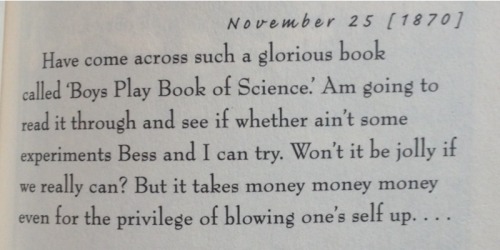
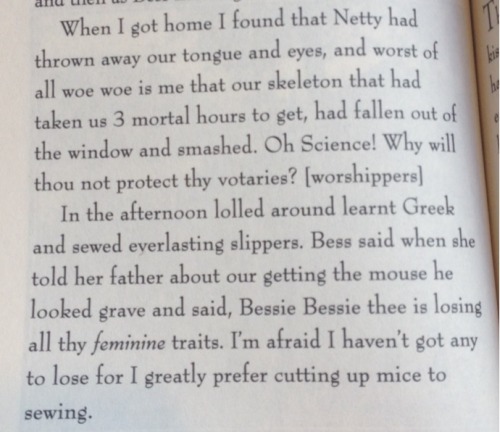
this is from a real diary by a 13-year-old girl in 1870. teenage girls are awesome and they’ve always been that way.
Please reblog for a bigger sample size!
If you have any fun fact about Lithuania, please tell us and I'll reblog it!

A wee knitter and friend. Ca. 1939. Shetland Museum and Archives, Scotland.










Newcomerstown, Ohio.
Built 1874.
4 bed, 3 bath.
$445,9000



These were the doodles I did in college in my history classes.
As in like what was the default thing you would draw on the margins when you were in class and had no creative ideas? Personally I was a wings and eyes kid. Usually wings though.
Please reblog to increase the sample size!

A treat for you! Happy Halloween.

It shrank and got frozen on it's way here I think but thanks‼‼‼‼‼‼‼‼
Thinking about the werewolf from the hate mail Lemgo council pharmacist David Welman (1595 - 1669) got after being accused of being a werewolf

My dearest Granddaughter.
Na, “Annwyl Wyres”. You’ve asked me to write what I remember for your school project, So I suppose you’ll want me to do it in Welsh.
Cariad bach, Sai'n gwybod beth i ‘weud wrthi ti. Silence is a hard habit to break.
Right from day one, this wasn’t something we talked about. It was a non-subject. Mae'n rhyfedd pan ti'n meddwl am y peth; While the whole world and his wife were talking about us, With their editorials And their news items and so on A tra bod y beirdd yn sgwennu cerddi amdanyn ni A'r holl eiriau'n golchi droson ni
O'n ni'n dweud dim.
We said nothing.
So how much should you know? It’s part of your history, Our family’s history. But I can’t share my guilt with you For making the child I lost go to school that morning (I wish I’d never shared that with your Bampy even) And that I felt guilty for having A child that lived.
But I wouldn’t have had you otherwise, would I?
None of this makes sense.
There are pictures that you ought to see from afterwards. The photographer came over from America And he was here for weeks after the disaster - Rapoport his name was. ‘Sgwyla di ar ei luniau fe. He took one of the first baby born afterwards The first wedding The first smiles And how many hundreds have there been since then, thank God? Those pictures show us carrying on Because we had to.
But there are things that those photos can’t show.
Like candles in pockets. Your aunty was afraid of the dark. I would light a candle for her in the cemetary - Lots did. It was like a second home to us for a long time afterwards. I would take extra candles in my coat pocket In case somebody else’s Had burnt down to nothing.
These are things I will carry with me ‘til I die.
But Do you have a right to them?
Because it was so terrible, Should you feel like so many before you That it’s your duty To comment To sympathise To identify?
Elli di ddim, cariad bach.
But I don’t want you to forget, either.
I can only give your aunty flowers On be ranna i beth alla i ‘da di.
I’ll give you all the memories that I can.
- Llythyr Mam-gu, by the bard Ifor ap Glyn.
Written in memory of the Aberfan Disaster, 50 years ago.
A lot of the time when I reblog jewellery on here, it’s art nouveau jewellery, because I really like art nouveau. In general, and in jewellery in particular. And most of that is the aesthetic. I like the natural forms, I like the twisty curly bits, I like the use of materials, I like how a lot of art nouveau jewellery is using metals and stones and other materials to create a specific form, an insect or a plant or a goddess or even sometimes nature scenes. I like …
I feel like a lot of the time with jewellery, it feels like ‘I’m going to use this object to show off the size and value of my pretty rock’. And there’s nothing wrong with that. Some of those rocks are indeed gorgeous. But art nouveau feels more ‘I’m going to use these pretty rocks, and several other things, to create the impact of this object’? I just love the use of materials, glass and enamel and colour, as well as precious stones and metals, to create a form or a scene.
Like, you get a diamond ring, it’s a diamond ring. But you get something like a dragonfly brooch (Louis Acoc):

Or a lilypad hair comb (Rene Lalique):

Or a wisteria branch (Georges Fouquet):
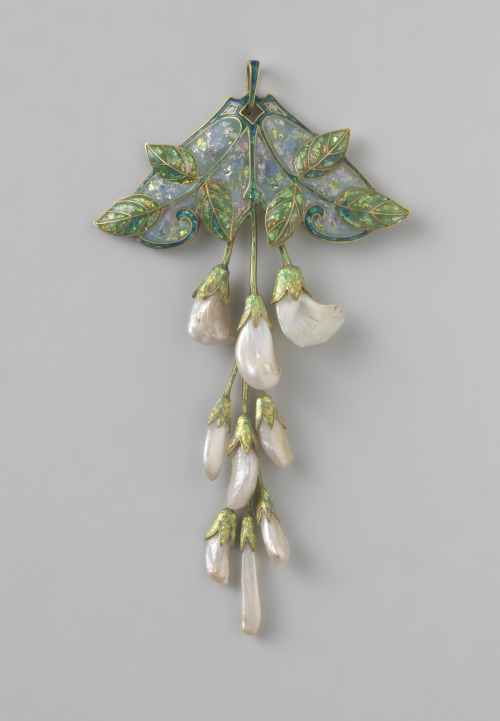
And it’s a whole creation. A little wearable piece of art.
And I don’t want to sound too dismissive. I know the craftmanship and skill and artistry that goes into any kind of jewellery making. That diamond ring took skill I will never have. I just.
I like the emphasis on form more than material that you get with art nouveau. Like normally you hear ‘glass jewellery’, ‘enamel jewellery’, and it’s cheap, it’s frowned upon, but in art nouveau it’s what that glass or enamel was used to make that’s the important part:
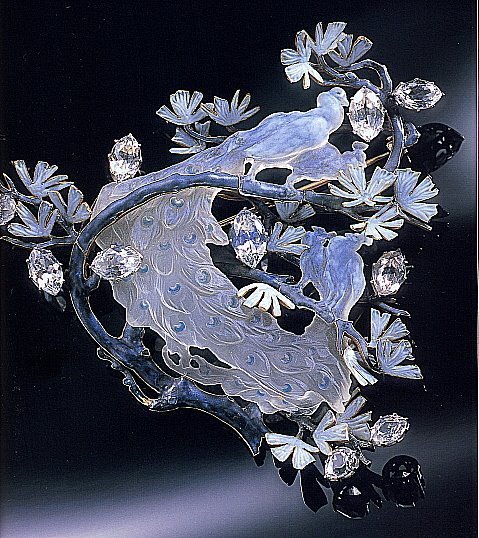
(Rene Lalique)
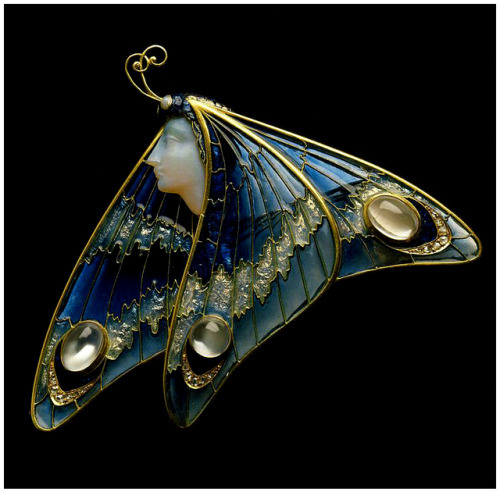
(Eugene Feuillatre)
Anyway. In summary, I really, really, really like art nouveau jewellery?
In 1944 a kitten named George (short for General Electric) was saved from drowning by a U.S. Navy crew member. George was then photographed and given a liberty card and detailed health record. Source.



The Appalachian Mountains, Atlas Mountains, Scottish Highlands and Scandinavian Mountains were all once part of the same “Pangea Central Mountain Range” millions of years ago before Earth’s continents split.
Fun little thing about medieval medicine.
So there’s this old German remedy for getting rid of boils. A mix of eggshells, egg whites, and sulfur rubbed into the boil while reciting the incantation and saying five Paternosters. And according to my prof’s friend (a doctor), it’s all very sensible. The eggshells abrade the skin so the sulfur can sink in and fry the boil. The egg white forms a flexible protective barrier. The incantation and prayers are important because you need to rub it in for a certain amount of time.
It’s easy to take the magic words as superstition, but they’re important.
Oh holy shit they found Silphium alive and growing in the wild.

Gang, I am looking for a photograph I know exists, but I can not find. It is a historic black and white photo of a group of butches/transmen with a sign that say's "Who says there are no boys in Chaigao" (I believe, in reference to the draft)

I’m sorry, WHAT THE FUCK IS HAPPENING?!?!?

Shoes a-flame with the modernity of the 1920s, gold licking the red leather in curlicues but what was the frock of choice to go with? Drexel University.
I JSUT SCROLLED DOWN AND SAW YOU DON'T LIKE THE CHAIN ANON THINGS I'M SORRY AAAAAAAAAAAA
IT'S OKAY I APPRECIATE YOUR APOLOGY I SAW IT AT AN OKAY TIME.
I finished my Rome book and have now begun one about Pompeii. I’m 65 pages in and I already love it: yes, it covers the volcano, but most of the book is about “this is what the town and daily life of it would have been like, actually.” Fascinating stuff. Things I’ve learned so far:
- The streets in Pompeii have sidewalks sometimes a meter higher than the road, with stepping stones to hop across as “crosswalks.” I’d seen some photos before. The book points out that, duh, Pompeii had no underground drainage, was built on a fairly steep incline, and the roads were more or less drainage systems and water channels in the rain.
- Unlike today, where “dining out” is expensive and considered wasteful on a budget, most people in Pompeii straight up didn’t have kitchens. You had to eat out if you were poor; only the wealthy could afford to eat at home.
- Most importantly, and I can’t believe in all the pop culture of Pompeii this had never clicked for me: Pompeii had a population between 6-35,000 people. Perhaps 2,000 died in the volcano. Contemporary sources talk about the bay being full of fleeing ships. Most people got the hell out when the eruption started. The number who died are still a lot, and it’s still gruesome and morbid, but it’s not “an entire town and everyone in it.” This also makes it difficult for archeologists, apparently (and logically): those who remained weren’t acting “normally,” they were sheltering or fleeing a volcano. One famous example is a wealthy woman covered in jewelry found in the bedroom in the glaridator barracks. Scandal! She must have been having an affair and had it immortalized in ash! The book points out that 17 other people and several dogs were also crowded in that one small room: far more likely, they were all trying to shelter together. Another example: Houses are weirdly devoid of furniture, and archeologists find objects in odd places. (Gardening supplies in a formal dining room, for example.) But then you remember that there were several hours of people evacuating, packing their belongings, loading up carts and getting out… maybe the gardening supplies were brought to the dining room to be packed and abandoned, instead of some deeper esoteric meaning. The book argues that this all makes it much harder to get an accurate read on normal life in a Roman town, because while Pompeii is a brilliant snapshot, it’s actually a snapshot of a town undergoing major evacuation and disaster, not an average day.
- Oh, another great one. Outside of a random laundry place in Pompeii, someone painted a mural with two scenes. One of them referenced Virgil’s Aeneid. Underneath that scene, someone graffiti’d a reference to a famous line from that play, except tweaked it to be about laundry. This is really cool, the book points out, because it implies that a) literacy and education was high enough that one could paint a reference and have it recognized, and b) that someone else could recognize it and make a dumb play on words about it and c) the whole thing, again, means that there’s a certain amount of literacy and familiarity with “Roman pop culture” even among fairly normal people at the time.
-boops your nose- send this to ten blogs you think are lovely and deserve a boop on the nose. 🖤~booooop~<^_^>
I appreciate you sending this to me but these sorts of things make me unreasonably anxious so I ask people do not send me chain things like this thank you.




~ Vénus: Autumn/Winter, Milieu du siècle collection.
Designer/Maker: Christian Dior; embroidery by Maison Rébé; authorized copy made by Nanty Frocks, New York
Place of origin: Designed in Paris, produced in New York
Date: 1949-1950
Medium: Viscose (rayon) tulle with pearlised paillettes and sequins
why do you think a lot of historians don't think that alexander (and, by extension, other people in history) was gay? sorry if this is worded strangely by the way
Anon I’m not yelling at you I love you but I have to yell because everyone on tumblr spreads such bad misinformation. NO HISTORIANS THINK ALEXANDER WAS STRAIGHT. NOR ANY OTHER OLD TIME GAYS. LITERALLY NONE. THIS IS A MYTH PERPETUATED ON TUMBLR AND IT ISNT REAL STOP BELIEVING IT IM LOSING MY MIND !!!!!!!!!!!!!!!!!!!!!!!
Okay. Now that I am. Calm. Sorry. Even tho plenty of historians were homophobic back in like last century — no one currently writing, period — they still could not DENY that Alexander who kept a MALE CONCUBINE , FUCKED MEN. Even the MOST homophobic ones were like “it was his worst vice” but they couldn’t DENY it. NOBODY EVER sorry normal volume nobody ever denied it in the whole history of the world never. Never. No one. That is fake. People who say that do not know what they are talking about.
On the OTHER hand , historians will say that for example Hamilton was “straight” because there IS NO DEFINITIVE EVIDENCE OTHERWISE. no, a few gay letters are not hard evidence. YES, male friendship mores were WAY DIFFERENT in old times, and it’s WAY too much extrapolation to assume from a few gay sounding TO US letters that he was fucking that twink Laurens. That is BAD METHODOLOGY. that is not homophobic it is BAD METHODOLOGY. you cannot publish that kind of thing cuz it’s simply not got enough evidence. I don’t care if they probably were, there is EMPIRICALLY NOT ENOUGH EVIDENCE.
Okay. Also. Last point. l hate the misinformation on this hell site. Last point.
Gay and straight were not labels that existed until the late 1800s. Historians do not write about sexuality in terms of gay and straight because gay and straight did not exist as we know them to people prior to the late 1800s. We can only judge how people in history had sex based on their actions. If a historian says Alexander wasn’t gay or bi it isn’t because they’re saying he didn’t fuck men. It’s because they’re saying it’s extremely reductive and bad scholarship to ascribe modern definitions of sexuality and modern sexual mores to the ancient world. When we’re just hanging out and talking one on one or casually, no problem saying gay and straight! It helps us conceptialize how they lived! It’s something we understand. But in a PAPER you are trying to PUBLISH, you CANNOT say that because it misinterprets the workings of their society.
Okay. Thank you. I hope this clears things up for every dumbass who makes those posts and misinforms my innocent fellow classics people who are new and do not know. I hate y’all. Not you anon. Y’all who peddle this ….. homophobia nonsense. Stop it

Stone-hewn graves at Heysham, Lancashire. Believed to be 11th Century.

